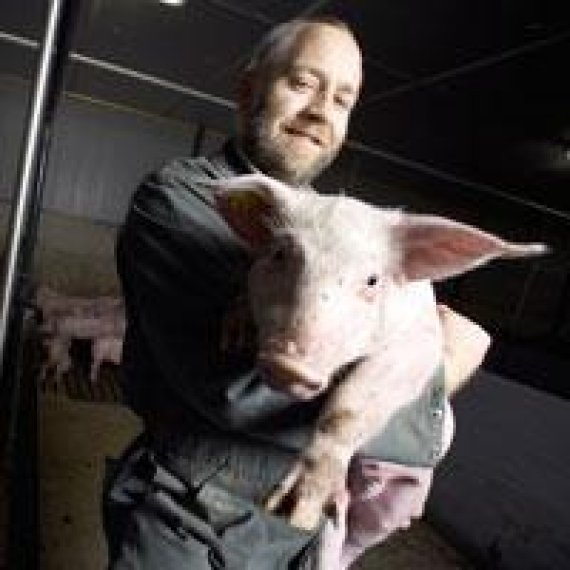Driessen, who does not have any background in animal husbandry, sees the food production situation through the eyes of a city dweller. How can one claim to love animals and yet slaughter them afterwards? This tendency towards ethical unambiguity – on which many a social debate is based – came under attack during a practical dairy farming course. Dairy farmers talked to and touched the cows in such a way as if they were more than a means of production. There was also a large-scale chicken farmer who regularly sat among the chickens to see how they behaved. The attention given to the animals seemed to be interwoven with what they produced. From the point of view of animal ethics or environmental idealism, the farm seems to be a mess, a mixture of values which depend to a great extent on local circumstances and the kind of farmer. For example, several organic dairy farmers had wanted to stop livestock dehorning, which would put the cows at more risk of being injured. Faced with this ethical dilemma, they tried to find a solution by making adjustments to the layout of the barn, so that the cows got less in one another’s way. ‘In fact, the question faced by the farmers was: what kind of farmer do you want to be? And this is a much more complex question than attending to straightforward issues such as animal welfare requirements,’ says Driessen. His findings have been published in the Journal of Agricultural & Environmental Ethics. He feels that the experiences of farmers should be considered more seriously when setting up rules, regardless of whether these concern welfare, the environment or mega barns. As such, ethics can move from focussing on an ideal final scenario to a process of continuous improvement. Sometimes, unexpected issues – for city dwellers – are the ones which can make a real difference. Such as the pig farmer who switched to group accommodation in straw because that made his children enter the barn again. In this example, the importance of family standards and business succession go hand in hand with welfare requirements.
Farms take many ethical dilemmas in their stride
Policy discussions about livestock farming make farmers out to be no more than commercial entrepreneurs who consider animals merely as a means of production. An erroneous view, says philosopher Clemens Driessen. Farmers try to incorporate a range of ethical issues into a coherent undertaking.

